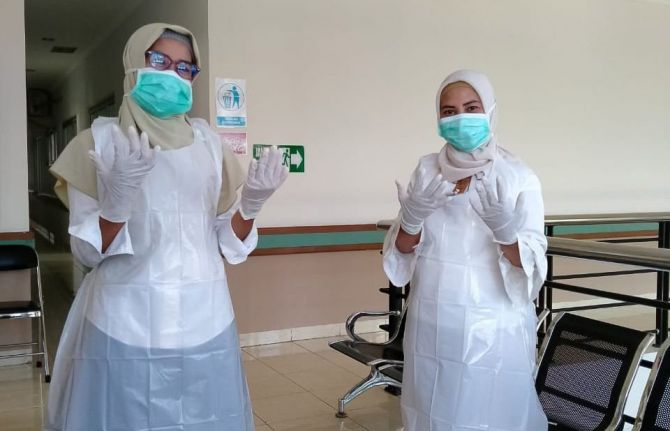

Feature Story
Paying tribute to care workers during an online Labour Day event
01 May 2020
01 May 2020 01 May 2020On 1 May 2020, the UNAIDS Executive Director Winnie Byanyima joined Oxfam Denmark to pay tribute to care workers during an online Labour Day event. Below are the transcripts of her video message.
Hello everyone!
It’s an honour to join you to celebrate 1 May—the international day of workers. In the time of COVID-19, it is our frontline workers in hospitals, community health centres, care facilities, supermarkets, taxis and delivery vans who are risking their lives for us.
Here in Geneva we clap for health workers and carers every evening at 9 p.m. to show our gratitude.
But this is not enough. We must value and fairly reward the work they do.
Women make up 70% of frontline health and care workers. Twenty-four million out of the 28.5 million nurses in the world are women, and they earn on average 28% less than their male counterparts. They are low paid and receive poor benefits. In developing countries, community health workers, mostly women, play a critical role in disease prevention, promoting healthy behaviours and linking community members to formal health centres. Community health workers are often women volunteers, getting no compensation from public health systems. What a gender injustice!
And guess what? The coronavirus is aggravating this injustice. It has been heartbreaking to watch TV images of nurses and doctors who died because they did not have personal protective equipment. We must protect our health workers and ask our governments to prioritize their safety.
Then there is unpaid care work, done mostly by poor women and girls in their households—raising children, feeding families, caring for the sick and the elderly and so on—work estimated to cost about US$ 11.5 trillion globally. The burden of unpaid care work denies women and girls education and economic opportunities, it undermines their well-being and other roles in society and, again, the coronavirus is making this worse. An African woman, who already walked on average 6 km a day to fetch water, now needs to fetch even more because of the virus.
So, as we fight this deadly virus, I say, let us tackle the old gender inequalities that are feeding on and aggravating it. Let us demand fair and equal pay for health and care workers, let us demand that they have the personal protective equipment they need. They are our heroes.
Let’s end exploitation of women by calling for the recognition, redistribution and reward of unpaid care work.
Workers of the world, let’s give value to what truly matters in life, and celebrate and justly reward all care workers.
Thank you!



